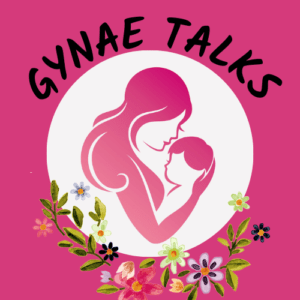INTRAHEPATIC CHOLESTATIS OF PREGNANCY

Intrahepatic cholestatis of pregnancy (ICP) also known as Obstetric cholestasis is a liver disorder that occurs in pregnancy.It usually occurs in the last trimester of pregnancy and sometimes in the late second trimester. It temporarily impairs the liver function in the pregnant women and thereby increasing the liver enzymes. It is characterised by intense itching in the absence of skin rash. Let us understand the causes of Intra-hepatic cholestasis of pregnancy.In this article we will learn about Cholestatis of Pregnancy causes,symptoms,treatment and monitoring.
1. What are the causes of Intra hepatic cholestatis of pregnancy?
In pregnancy , level of hormones in the body especially estrogen increases.This causes relaxation of the smooth muscles of bile duct.So the bile juice which is normally released in intestine for the digestion of food is not released.The bile juice accumulates in the liver and thereby enters the blood stream.This bile acid gets deposited under the skin causing itching in the mother.
There are several other normal causes of itching in Pregnancy.Causes may be dryness of skin, increased blood circulation, stretching of skin due to abdominal distention and increase in weight of expecting mother. For more information see my video below.
When does cholestasis of pregnancy start
Cholestatis of pregnancy start duing the end of second trimester or starting of third trimester
3. What are the Symptoms of Cholestasis pregnancy ?
- ITCHING or pruritis– ICP causes severe itching in the pregnant mother.It is characterstically more on the palms of hand and sole of feet.Itching can also be on the other body parts too.Itching is more severe in the night,thereby disturbing the sleep of the mother. Disturbed sleep in the mother may lead to significant emotional distress and malaise.
- JAUNDICE – ICP may be associated with or without jaundice.There may be yellow discolouration of skin due to jaundice.It occurs usually 2-4 weeks after the onset of itching.
- NAUSEA,VOMITTING,ABDOMINAL DISCOMFORT – There may be indigestion and decreased appetite . This is because bile juices are not entering the intestines for digestion of food.Raised liver enzymes may cause nause and vomitting.
- PALE URINE AND CLAY COLOURED STOOLS may also be the presentation in some patients.
4. How is cholestasis of pregnancy diagnosed?
When a pregnant female comes with complaint of itching and /or other signs and symptoms of ICP ,your doctor advise blood test. This is to make the diagnose of cholestasis of pregnancy.These are LFT, S bile acids, sometimes lipid profile. Lab findings which suggest ICP are :-
Cholestasis of pregnancy diagnostic tests are done to know followings
- Increase in S.bile acids
- Increase in liver enzymes ( SGOT,SGPT)
- Increase in direct S.bilirubin
- All females should be screened for viral hepatitis
5. How is ICP managed?
a. Monitoring of Mother
- Weekly Liver Function Test (LFT) should be done. This is to assess the severity of ICP and when to terminate the pregnancy and plan delivery.Coagulation profile sholud also be done as it may be deranged due to deficiency of vitamin K.
b. Fetal Monitoring
- Weekly non stress test (NST) should be done .
- Weekly ultrasound doppler to see that the increased bile acids in the circulation are not harming the baby.If doppler studies are abnormal then delivery has to be planned.If preterm delivery is planned then steroid cover is given to the mother.This is for the lung maturity of baby.
- Strict daily fetal movement count should be done by the mother.Baby movements should be atleast 10-12 times per day.
c. Pruritis / Itching
- Antiallergics may be given to the mother to relieve itching.
- Topical emollients can be applied over the skin to get symptomatic relief from itching.Lactocalamine lotion can be used to relieve itching
- UDCA salts( urso deoxycholic acids) may be prescribed by your doctor to decrease the level of bile salts in the circulation.
Ultimate treatment of ICP is delivery of the baby , after which the liver enzymes and bile acids come to normal in few days.There is no permanent damage to the liver.
Maternal outcome is usually good , itching resolves immediately after the delivery.There is incresed incidene of gall stones in later life in these females.
6. Complications in baby due to Cholestasis of Pregnancy
There is increased incidence of prematurity as pregnancy .Because pregnancy is terminated early due to deranged doppler studies or non reactive NST.
There are chances of intra uterine death of baby. So careful monitoring of the baby has to be done as mentioned previously.
There are also increased chances of baby passing stools (meconium) when still in the womb of mother. MSL may lead to fetal distress. The meconium stained liquor (MSL) when aspirated by baby during labour or during delivery may cause pneumonitis in the baby.MSL also increases the chances of cesarean delivery.
7. Summary
Itching which is typically on soles and palms and is without rashes in pregnancy may be due to intrahepatic cholestasis of pregnancy . So it should be timely diagnosed with the help of lab investigations and proper monitoring of mother and baby.Delivery should be planned if ultrasound doppler shows deranged studies or bile acids rise to a critical value . Labour should be properly monitored as increased chances of still birth and MSL.
Must Read : Ultrasound in Pregnancy









